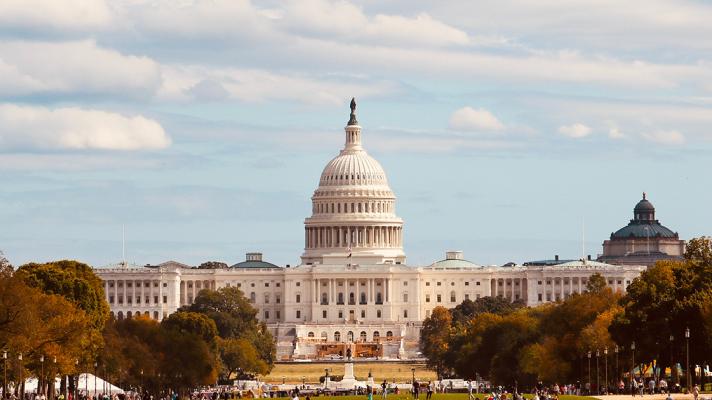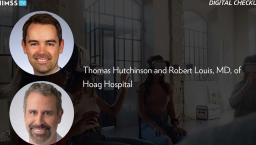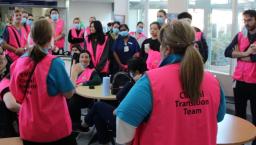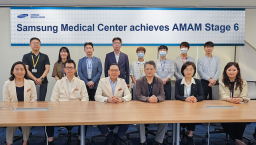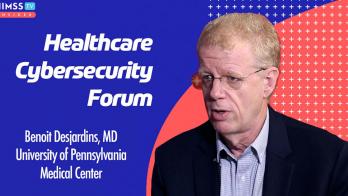
Photo: Dean Mitchell/Getty Images
None of us should ever have to worry about getting shot at our workplace. Sadly, however, our nation is experiencing a perfect storm of unprecedented circumstances: escalating gun violence, an increase in mental health concerns, high levels of generalized anxiety, and employees returning to our workplaces post pandemic.
As healthcare leaders, we have duty of care responsibility for all our employees and the visiting public. That means we can no longer ignore reality: Our workplaces are not exempt from a senseless tragedy happening right where we are.
The numbers are alarming. In 2020, homicides increased across U.S. cities overall. Murders rose by 33 percent and gun homicides by 37 percent compared to 2019. It was the largest single-year increase in more than a century, according to data published by the FBI.
When it comes to our workplaces, the National Safety Council reports that assaults (including shootings), are the fifth leading cause of work-related deaths. In 2020 alone, 705 workers in the United States lost their lives to violence. And in 2021, more than 20,000 workplace assaults resulted in 481 fatalities.
Shockingly, behind transportation accidents, workplace violence is the number one cause of death for women, accounting for about 25% of female workplace fatalities in 2020 according to the Bureau of Labor Statistics’ 2021 Report.
Workplace violence is indiscriminate. It threatens every industry and size of organization—but it has reached epidemic levels in the healthcare industry.
Workplace violence in healthcare
Recently, the American Journal of Managed Care published findings that seven out of 10 emergency physicians reported being physically assaulted at work. Forty-four percent of nurses reported experiencing physical violence and 68 percent reported experiencing verbal abuse during the COVID-19 pandemic.
With U.S. healthcare facilities accounting for 18.3 percent of GDP and 22 million jobs (2021), the environment represents a unique organization-wide exposure that demands protection. When unmitigated gun violence—and violence in general—goes unchecked in any of our facilities, the physical and psychological impact can be severe, lasting, even devastating.
Beyond injuries and tragic loss of life, the fallout for unchecked gun violence creates worker anxiety, loss of productivity and workdays, and significant legal and reputational losses.
It is no wonder that as many as eight in 10 Americans rate violent crime as a leading issue in the U.S., and our collective anxiety is now being measured. According a 2022 Stress in America poll of 3,982 U.S. adults, 75% cited violence and crime as a leading cause of anxiety, with a third of those surveyed saying they avoid going to certain locations as a result.
Every organization has a responsibility
As leaders, we each pivoted quickly, effectively and creatively to protect the health and wellbeing of our employees, customers, and patients during the pandemic.
Now in 2023, the onus is on us to make the same smart pivot to protect our workplaces from senseless gun violence. We may think this level of protection is out of reach – or that it looks like a TSA-type barrier to the free flow of traffic in and out of our buildings – but that is not the case.
Safety technologies now include increasingly sophisticated metal detection systems that can help us cost effectively prevent and mitigate senseless acts of violence from ever happening.
Thinking about AI & security in a new way
Nearly every company today trusts artificial intelligence in some way to help it run more efficiently and contribute to bottom-line growth. AI has transformed our manual operations into smarter processes running at unprecedented speed and scale.
In fact, AI has quite literally changed our lives and how we go about our day. From the machines we exercise on, to our voice-activated home systems and work productivity tools. This same powerful AI technology can help us protect our people and the visiting public by using advanced sensors, cameras, and machine learning models to create safer zones.
With this type of AI weapons security system, security becomes a frictionless experience that lets the majority of foot traffic keep flowing—while stopping bad actors with guns from entering our buildings.
At Northwell, in addition to utilizing AI-based security, including Evolv Technology’s Evolv Express, we established a Center for Gun Violence Prevention to coordinate efforts on a local, state and national level to make gun violence a top health care priority.
We’re doing this by conducting research on hospital-based violence intervention strategies, developing a public health approach to combat this epidemic and leading a peer-to-peer learning collaborative of over 600 hospitals and health system from 38 states to develop and implement best practices to reduce gun violence.
The value of peace of mind
As business leaders today, we are constantly challenged to look at new ways to create environments of safety from a cultural, physical, psychological, and technology perspective.
Whether our workplaces use a hybrid model, or we require all our employees to be on site, our people are our number one investment. Creating safer zones for them to collaborate and do their best work is essential.
It’s been difficult to watch personnel from today’s highest-risk work environments – including education and healthcare – leave their professions by the thousands because of the anxiety they experience from simply coming to work to do their jobs.
Unsafe work environments create job dissatisfaction, burn out, and low levels of productivity. It is an unsustainable reality – and yet there are accessible and effective multifactorial solutions.
In addition to adopting new technologies, senior leaders should also consider prioritizing the creation and implementation of comprehensive workplace violence prevention plans – then socializing them via training company wide.
We live in a more dangerous world. Now is the moment for us to leverage our leadership to take action for the safety, security and peace of mind of our employees and the visiting public in our care.
Michael Dowling is president and CEO of Northwell Health, where he leads a clinical, academic and research enterprise with a workforce of more than 83,000 and annual revenue of $16.5 billion. He is one of healthcare’s most influential voices, taking a stand on societal issues such as gun violence and immigration that many health system CEOs shy away from.

